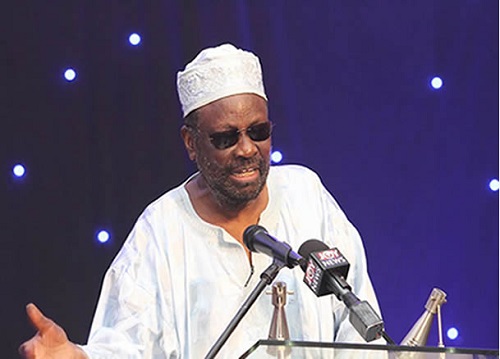In The colonial days (that is, before 1957) there was a dual system of justice in Ghana.
Two types of law were being administered to our populace.
One was called the “native Authority” system, and the other was known as the courts section of administration by the Central Government (or some such nomenclature).
Disputes relating to “small” matters relating to everyday life were adjudicated by a graduated apparatus run by the chiefs of a “state” or locality and their elders. Serious crimes were referred initially to a magistrate, and then higher up in stages till an apex court then called the “West African Court of Appeal” (WACA). WACA was however not supreme: for really very serious cases, the judicial committee of the British House of Lords (seated in London) was the last resort. Just imagine how costly that process was!
Now, native authority courts were largely expected to interpret and apply customary law. A man says he was no longer providing maintenance for the woman he’d been living with for the past ten years.
He was entitled to divorce her after laying specific charges against her before her family elders. Had he done so? If not, then case dismissed. And that sort of thing.
It was when the ordinary person (usually illiterate) came up before a magistrate who applied British law that confusion arose. In British law, the first crucial question an accused person was asked, was, “Guilty or not guilty?”
How was a man with little knowledge of British law (if any) supposed to answer this?
He might have physically assaulted the person who had brought a complaint against him. But why did he do that?
If the accused person thought he was wrong to have assaulted the complainant but he did so after he had suffered undue provocation, he would answer the guilty plea question with a formula that was enunciated as ‘GUILTY WITH EXPLANATION!’ Of course, this plea amused British-trained lawyers immensely (especially if they were new to the Gold Coast). Admitting to having committed a crime before the particulars had been recounted in court was “madness” in the British adversarial system of justice. But only British- trained lawyers knew this, and many earned a good living by advising culprits to plead “NOT GUILTY” first, before “explaining” their actions with sweet words. (In Twi, when you have a good case, they say, “w’asɛm yɛ dɛ!”)
The ambulance importation case which everyone is currently talking about instructs all of us that our judicial system is sometimes dangerous, in the sense that it creates contradictions that create conflicts in our minds.
Our Attorney-General, it appears, has allowed himself to be trapped in a honeycomb, not inhabited by pretty women but by crafty political operatives. These operatives know that modern mobile phones can be turned into recording devices by a deft flick on the instrument. They also know that an interview in the home of a Justice of the Supreme Court cannot be denied to a junior of the Supreme Court Judge.
They also knew that any one who asks someone else to go to court and lie for whatever purpose, has incited that person to commit perjury. And perjury is a criminal offence.
The irregularities have been –basically – accepted by the judge. But then came a strange happening: instead of the judge making a finding that the Attorney-General had committed an offence of some sort – suborning or attempting to suborn a witness, for example – she asked the Attorney-General to “recuse” himself from the case! Did she “advise” him to do that because he had committed an offence, or what?
It is not for laymen like yours truly to delve too deeply into this issue. All we can say is; please, legal officers, please be true to your calling. If you confuse us, anarchy beckons.


